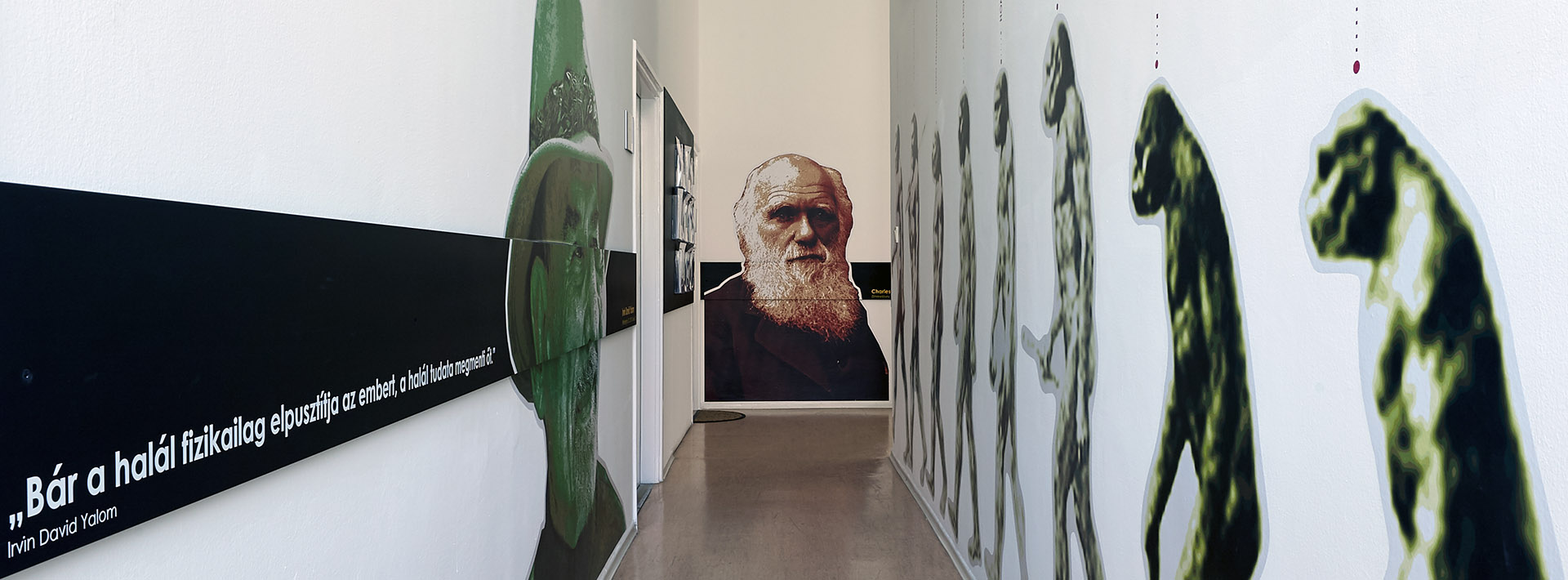Data
Official data in SubjectManager for the following academic year: 2024-2025
Course director
-
Mátics Róbert
associate professor,
-
Number of hours/semester
lectures: 24 hours
practices: 0 hours
seminars: 0 hours
total of: 24 hours
Subject data
- Code of subject: OXF-SB2-o-T
- 2 kredit
- General Medicine
- Optional modul
- both
-
Course headcount limitations
min. 5 – max. 15
Available as Campus course for . Campus-karok: BTK TTK
Topic
Prof Robert Sapolsky has a course on behavioural genetics on Stanford University. The 2010 lectures are freely available on the internet. Our course is based on the idea that by hearing a ca. 45-60 min long speech given there, we discuss the facts and hypotheses heard. The expansion and/or integration of this new knowledge is a key goal of the course.
Lectures
- 1. General Introduction - Mátics Róbert
- 2. Twin studies - Mátics Róbert
- 3. IQ and birth order - Mátics Róbert
- 4. IQ and birth order - Mátics Róbert
- 5. Recognizing relatives: cellular level - Mátics Róbert
- 6. Recognizing relatives: cellular level - Mátics Róbert
- 7. Recognizing relatives: social anosmia - Mátics Róbert
- 8. Recognizing relatives: social anosmia - Mátics Róbert
- 9. Recognizing Relatives: intrasexual conflicts - Mátics Róbert
- 10. Recognizing Relatives: intrasexual conflicts - Mátics Róbert
- 11. Human Sexual Behaviour: proximal and distal causes - Mátics Róbert
- 12. Human Sexual Behaviour: proximal and distal causes - Mátics Róbert
- 13. Human Sexual Behaviour: female orgasm - Mátics Róbert
- 14. Human Sexual Behaviour: female orgasm - Mátics Róbert
- 15. Human Sexual Behaviour: non-reproductive sex - Mátics Róbert
- 16. Human Sexual Behaviour: non-reproductive sex - Mátics Róbert
- 17. Human Sexual Behaviour: human-specific patterns - Mátics Róbert
- 18. Human Sexual Behaviour: human-specific patterns - Mátics Róbert
- 19. Human sexual behaviour: reproductive arrest - Mátics Róbert
- 20. Human sexual behaviour: reproductive arrest - Mátics Róbert
- 21. Aggression: the right kind of violence - Mátics Róbert
- 22. Aggression: reconciliation - Mátics Róbert
- 23. Aggression: evolutionary implications - Mátics Róbert
- 24. Summary, questions, discussion - Mátics Róbert
Practices
Seminars
Reading material
Obligatory literature
No compulsory books or readings.
Literature developed by the Department
Hand-outs will be given.
Notes
The extended notes by Prof Sapolsky are available from me.
Recommended literature
Evolution of Behavior
Axelrod R, Hamilton WD: The Evolution of Cooperation, Science 211, 1981 1390-1396. Classic paper on the subject.
Pool, R: Putting Game Theory to the Test, Science 267, 1995 1591-1593. Going from sociobiological theory to actual field data.
Morrell V: Genes versus Teams: Weighing Group Tactics in Evolution, Science 273, 739. 1996 A consideration of the contemporary version of group selection.
Kerr B et al.: Local Dispersal Promotes Biodiversity in a Real-life Game of Rock-paper-scissors, Nature 418 171, 2002 This shows game theory being played out in an unlikely species. Just read the abstract.
Semmann D et al.: Volunteering Leads to Rock-paper-scissors Dynamics in a Public Goods Game, Nature 425 390, 2003 If you’re really into game theory stuff, this paper shows the rock-paper-scissors in humans. It’s pretty thick going thought, so not for the rookie (i.e., not required).
Conditions for acceptance of the semester
-
Mid-term exams
Make up by appointment
Making up for missed classes
Make-up classes are possible if needed, we'll have to make appointments.
Exam topics/questions
no exam
